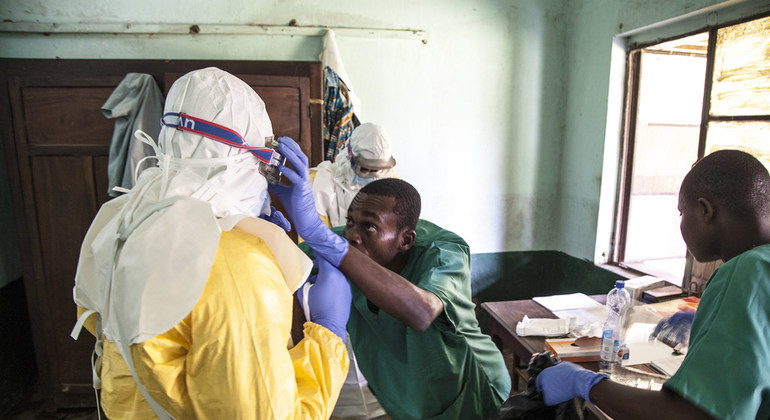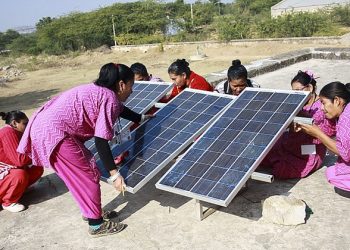Security Council gravely concerned over Ebola outbreak in DR Congo
The Security Council reiterated Friday its “grave concern” about the most recent outbreak of Ebola in the Democratic Republic of the Congo (DRC), and emphasized the need for continued cooperation with the DRC authorities to address the outbreak, as well as with other countries in the region.
The statement also expressed the Council’s apprehension over the security situation in the Ebola-affected areas, particularly attacks on humanitarian and medical personnel, which severely hampers the response and facilitates the virus’ spread.
The Council condemned these attacks “in the strongest terms” and called for all armed groups to end hostilities, while emphasizing the importance of strengthening international support, and engagement to bring the disease permanently and successfully under control.
Another ‘devastating week’ for children in the Middle East and North Africa
July had seen another “devastating week” for children living through conflict and instability in the Middle East and North Africa, with killings and other violent acts committed against them, on a daily basis.
This sobering assessment was delivered on Friday by Henrietta Fore, the head of the UN Children’s Fund, UNICEF, who cited an attack on schools and a hospital in Libya’s capital, Tripoli; the killing of four students shot to death during a demonstration in Sudan; and an attack in Yemen which killed four children and injured 14.
The UNICEF chief also mentioned ongoing heavy violence in Syria, which has killed or injured 359 children since the start of the year, and 477 children injured in Palestine so far in 2019.
“Those who perpetrate this violence are failing children and falling far short of their obligations under international law to keep them out of harm’s way”, said Ms. Fore. “This is more than regrettable, it is an outrage.”
Climate crisis will ‘extensively change the patterns of human settlement: UN migration agency
The impacts of the climate crisis are likely to have a major effect on human settlement worldwide, experts from the UN migration agency (IOM) have confirmed.
Speaking to UN News, Dina Ionesco, the agency’s head of Migration, Environment and Climate Change, explained that we are now living in an era where catastrophic climate-related events are linked to human activity, and this is likely to have a major impact on the way that we decide to migrate, and settle:
“It is highly likely that undesirable environmental changes directly created by, or amplified by, climate change, will extensively change the patterns of human settlement. Future degradation of land used for agriculture and farming, the disruption of fragile ecosystems and the depletion of precious natural resources like fresh water will directly impact people’s lives and homes.”
You can read the full feature story here.
Plant a tree, save the planet
In a record-breaking day this week, at the Gulele Botanical Garden in Addis Ababa, Ethiopia launched an historic tree planting campaign. This is according to the United Nations Environment Programme, UNEP.
On Friday, the UN agency said that over 350 million trees were planted in an ambitious move to counter the effects of deforestation and climate change.
The event is part of Ethiopian Prime Minister Abiy Ahmed’s Green Legacy Initiative, which aimed to plant 200 million trees in a single day across 1,000 sites country-wide.
The Director of UNEP’s Africa Office, Juliette Biao Koudenoukpo said: “Afforestation is the most effective climate change solution to date and with the new record set by Ethiopia, other African nations should move with speed and challenge the status quo”.
Scouts step, virtually, into refugees’ lives
Scouts at the world’s biggest international scouting meeting, being held this year in West Virginia, United States, are learning what it’s like to be a refugee by stepping, virtually, into their world.
The UN refugee agency, UNHCR, is running an immersive 360 degree video experience at the jamboree, which has allowed hundreds of scouts to see what life is like for a young Syrian refugee, forced to flee his home at the age of five because of the ongoing conflict, which led to the death of his uncle, and the destruction of his home from a rocket.
Over the 10 days of the Jamboree, groups of Scouts also got the chance to speak to Omar, via video link, from his new home in Finland, as well as other refugee children, living in Kenya, Lebanon and Iraq.
Listen to or download our audio News in Brief for 02 August on SoundCloud:








